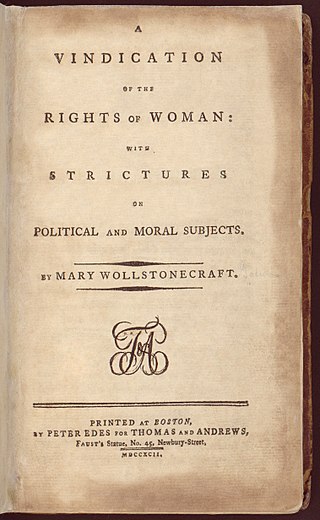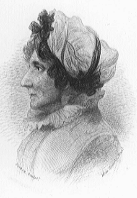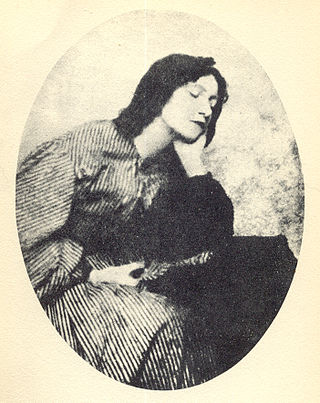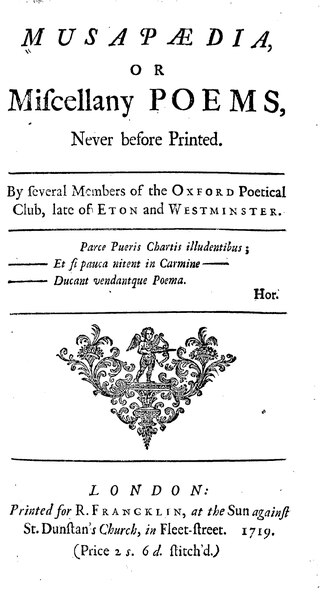Related Research Articles

A Vindication of the Rights of Woman: with Strictures on Political and Moral Subjects (1792), written by British philosopher and women's rights advocate Mary Wollstonecraft (1759–1797), is one of the earliest works of feminist philosophy. In it, Wollstonecraft responds to those educational and political theorists of the eighteenth century who did not believe women should receive a rational education. She argues that women ought to have an education commensurate with their position in society, claiming that women are essential to the nation because they educate its children and because they could be "companions" to their husbands, rather than mere wives. Instead of viewing women as ornaments to society or property to be traded in marriage, Wollstonecraft maintains that they are human beings deserving of the same fundamental rights as men.

Aphra Behn was an English playwright, poet, prose writer and translator from the Restoration era. As one of the first English women to earn her living by her writing, she broke cultural barriers and served as a literary role model for later generations of women authors. Rising from obscurity, she came to the notice of Charles II, who employed her as a spy in Antwerp. Upon her return to London and a probable brief stay in debtors' prison, she began writing for the stage. She belonged to a coterie of poets and famous libertines such as John Wilmot, Lord Rochester. Behn wrote under the pastoral pseudonym Astrea. During the turbulent political times of the Exclusion Crisis, she wrote an epilogue and prologue that brought her into legal trouble; she thereafter devoted most of her writing to prose genres and translations. A staunch supporter of the Stuart line, Behn declined an invitation from Bishop Burnet to write a welcoming poem to the new king William III. She died shortly after.

Anna Laetitia Barbauld was a prominent English poet, essayist, literary critic, editor, and author of children's literature. A "woman of letters" who published in multiple genres, Barbauld had a successful writing career that spanned more than half a century.

Elizabeth Eleanor Siddall, better known as Elizabeth Siddal, was an English artist, poet, and artists' model. Significant collections of her artworks can be found at Wightwick Manor and the Ashmolean. Siddal was painted and drawn extensively by artists of the Pre-Raphaelite Brotherhood, including Walter Deverell, William Holman Hunt, John Everett Millais, and especially by her husband, Dante Gabriel Rossetti.

Hannah More was an English religious writer, philanthropist, poet and playwright in the circle of Johnson, Reynolds and Garrick, who wrote on moral and religious subjects. Born in Bristol, she taught at a school her father founded there and began writing plays. She became involved in the London literary elite and a leading Bluestocking member. Her later plays and poetry became more evangelical. She joined a group opposing the slave trade. In the 1790s she wrote Cheap Repository Tracts on moral, religious and political topics, to distribute to the literate poor. Meanwhile, she broadened her links with schools she and her sister Martha had founded in rural Somerset. These curbed their teaching of the poor, allowing limited reading but no writing. More was noted for her political conservatism, being described as an anti-feminist, a "counter-revolutionary", or a conservative feminist.

Richard Graves was an English cleric, poet, and novelist. He is remembered especially for his picaresque novel The Spiritual Quixote (1773).

Elizabeth Bentley (1767–1839) was an English poet, one of a small wave of British and Irish writers from the labouring classes in the eighteenth century. She was a local poet who was nonetheless engaged with larger political and social issues.
Nationality words link to articles with information on the nation's poetry or literature.
Nationality words link to articles with information on the nation's poetry or literature.
Richard Polwhele was a Cornish clergyman, poet and historian of Cornwall and Devon.

Elizabeth Thomas was a British poet and letter writer. She was part of an important artistic group in London and John Dryden named her "Corinna". However, she suffered from lifelong financial precarity, romantic disappointment, and latterly, health problems. Her reputation was damaged by Alexander Pope and she spent three years in a debtor's prison near the end of her life.
Mary Jones was an English poet.

Robert Anderson (1770–1833), was an English labouring class poet from Carlisle. He was best known for his ballad-style poems in Cumbrian dialect.
Elizabeth Ogilvy Benger was an English biographer, novelist and poet. Some of her poetry had a strong social message.

A miscellany is a collection of various pieces of writing by different authors. Meaning a mixture, medley, or assortment, a miscellany can include pieces on many subjects and in a variety of different forms. In contrast to anthologies, whose aim is to give a selective and canonical view of literature, miscellanies were produced for the entertainment of a contemporary audience and so instead emphasise collectiveness and popularity. Laura Mandell and Rita Raley state:
This last distinction is quite often visible in the basic categorical differences between anthologies on the one hand, and all other types of collections on the other, for it is in the one that we read poems of excellence, the "best of English poetry," and it is in the other that we read poems of interest. Out of the differences between a principle of selection and a principle of collection, then, comes a difference in aesthetic value, which is precisely what is at issue in the debates over the "proper" material for inclusion into the canon.
Edward Cobden, D.D. (1684-1764) was a British divine, poet, and Archdeacon of London, from 1742–1764.
Eugenia was the pseudonym used by an unknown English pamphleteer of the early 18th century. She became known for a social riposte entitled The Female Advocate: Or, a plea for the just liberty of the tender sex, and particularly of married women. Being reflections on a late rude and disingenuous discourse, delivered by Mr. John Sprint, in a sermon at a wedding... at Sherburn... By a Lady of Quality.
Mary Birkett Card, was an Irish based British poet, abolitionist, and feminist, best remembered for her anti-slavery poem, A Poem on the African Slave Trade published when she was seventeen.
Jenny Fenno was a poet and religious writer active in Boston during the late 18th century. She is known for her collection of essays and poems Original Compositions in Prose and Verse, published in 1791. The collection is noteworthy for Fenno's assertion of her right to publish and share her writing as a woman.

Esther Day was a British author and philanthropist.
References
- ↑ "Mary Deverell © Orlando Project" . Retrieved 23 September 2016.
- ↑ Sermons on the following subjects, viz. I. Friendship. II. Gratitude to God. III. Mercy. IV. Pride. V. Sinful Anger. VI. The Advantages of Early Piety. VII. The unsearchableness of God's ways, and the Benefits of Afflictive Providence (Bristol).
- 1 2 The Feminist Companion to Literature in English, ed. Virginia Blain, Patricia Clements and Isobel Grundy (London: Batsford, 1990), pp. 286–287.
- 1 2 3 Anne Stott, "Deverell, Mary (d. 1805)", Oxford Dictionary of National Biography (Oxford, OUP, 2004) retrieved 23 September 2016. Pay-walled.
- ↑ Miscellanies in Prose and Verse, Mostly Written in the Epistolary Style: chiefly upon Moral Subjects, and Particularly Calculated for the Improvement of Younger Minds, 2 vols.
- ↑ The Critical Review, or Annals of Literature. Volume the Ninth (London, 1794), pp. 415–416 Retrieved 24 September 2016.
- ↑ The Ladies' Literary Companion; or A collection of essays, adapted for the instruction and amusement of the female sex